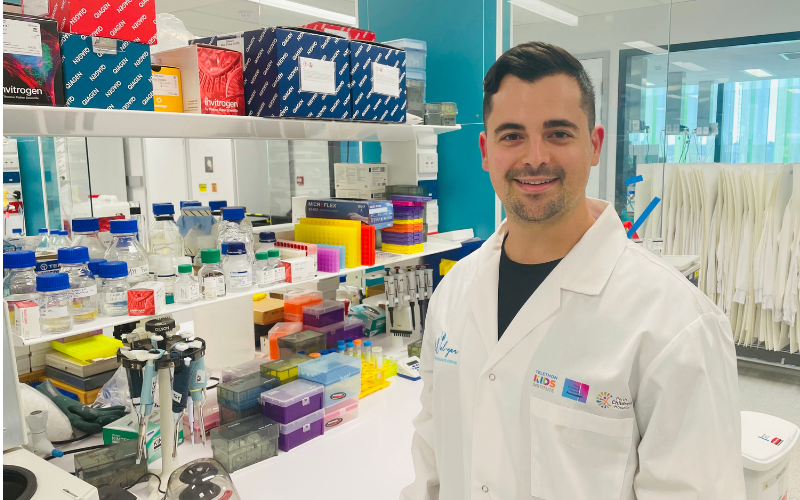Search
Showing results for "early lung health"

News & Events
Research into innovative treatments for people with asthma and antibiotic resistance supported by Innovation FellowshipsTwo outstanding researchers from the Wal-yan Respiratory Research Centre have been awarded a 2022 Innovation Fellowship supported by the WA Government's Future Health Research and Innovation (FHRI) Fund.
Research
Patient and carer priorities for research and clinical care of children with Down syndromeDown syndrome, the most common genetic disorder, is caused by the presence of all or part of a third copy of chromosome 21. We identified the top 10 patient and carer research priorities for children with Down syndrome.
Research
Direct versus video laryngoscopy with standard blades for neonatal and infant tracheal intubation with supplemental oxygen: a multicentre, non-inferiority, randomised controlled trialTracheal intubation in neonates and infants is a potentially life-saving procedure. Video laryngoscopy has been found to improve first-attempt tracheal intubation success and reduce complications compared with direct laryngoscopy in children younger than 12 months.

News & Events
Vertex grant to support research into treatment strategies for cystic fibrosis lung diseaseDr Daniel Laucirica, a research officer with the Wal-yan Respiratory Research Centre, will undertake new research into potential treatment strategies to prevent lung damage in people with cystic fibrosis (CF), under the mentorship of Associate Professor Anthony Kicic - made possible by a Vertex Cyst
Research
Comparing home polysomnography with transcutaneous CO2 monitoring to laboratory polysomnography in children with neuromuscular disordersClinical utility of home polysomnography in children with neuromuscular disorders is limited by lack of evidence that sleep-disordered breathing can be reliably identified and inability to diagnose hypoventilation because carbon dioxide is not measured.
Research
Fetal alcohol exposure, nutritional status and epigenetic disruption – exploring the linksAlexander David Martyn Larcombe Martino Symons BScEnv (Hons) PhD BSc PhD B.A. (Hons) PhD. Honorary Research Fellow Head, Chronic Diseases Research
Research
OPTIMUM: OPTimising IMmunisation Using Mixed schedulesPat Peter Susan Tom Jennifer Holt Richmond Prescott Snelling Kent PhD, DSc, FRCPath, FRCPI, FAA MBBS MRCP(UK) FRACP MBBS BMedSci PhD FRACP BMBS DTMH
Research
Fit testing of N95 or P2 masks to protect health care workersCoronavirus disease 2019 (COVID-19) is caused by severe acute respiratory syndrome coronavirus 2 (SARS-CoV-2) and has many similarities to severe acute respiratory syndrome (SARS) and Middle East respiratory syndrome (MERS). While reported morbidity and mortality from COVID-19 are lower than from SARS and MERS, many health care workers have been infected (up to 15% of health care workers in Victoria).
Research
Investigating the effects of macrolides on excessive synthesis and secretion of airway mucins using novel ex vivo and in vivo approachesAlexander Larcombe BScEnv (Hons) PhD Honorary Research Fellow Honorary Research Fellow Associate Professor Alexander Larcombe began work at The Kids

Mental health concerns in youth are important in their own right. However, they can be even more troubling when your child is dealing with other health conditions.
